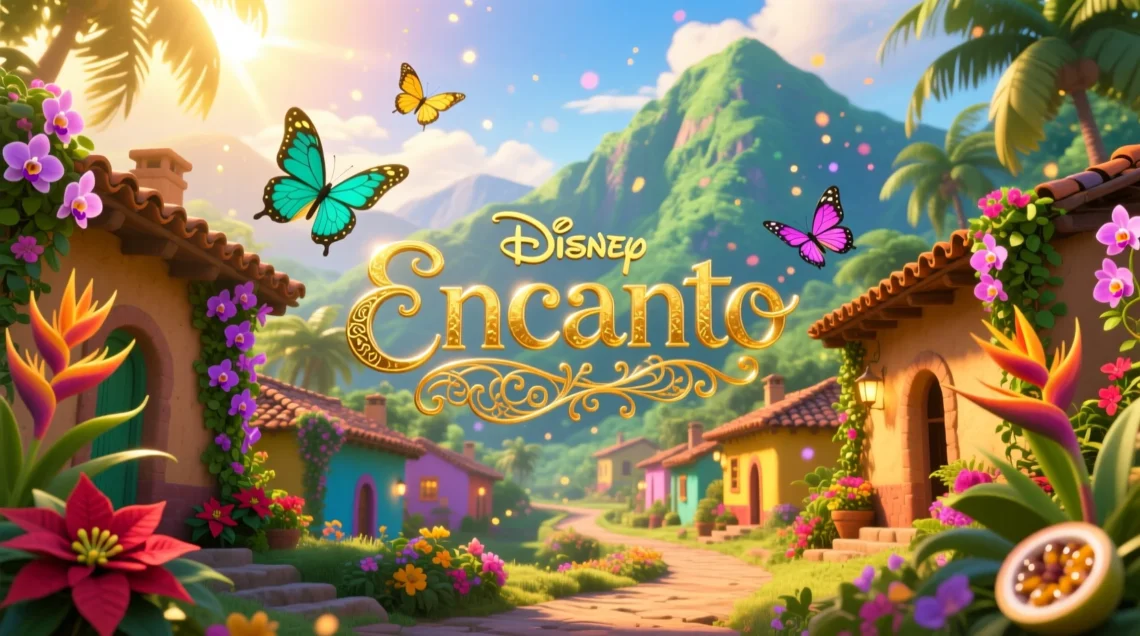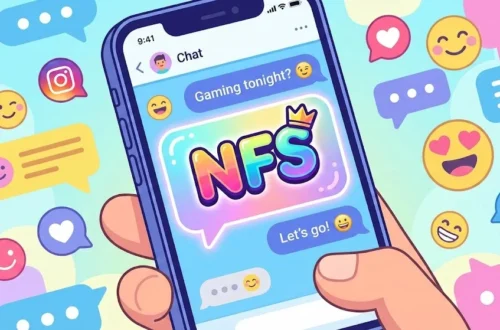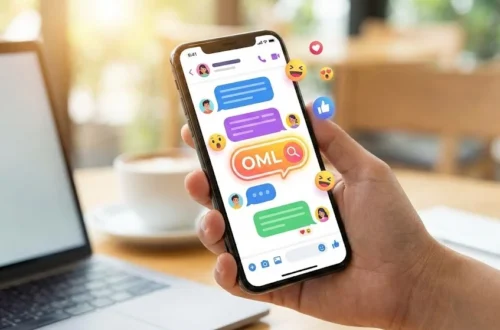Language has a way of capturing emotions that go beyond literal words. The Spanish word “Encanto” is a perfect example — a single term layered with meanings like charm, magic, and delight. It’s more than just vocabulary; it’s a feeling, a story, and a reflection of cultural depth.
If you’ve ever wondered, what does Encanto mean — in Spanish, in English, or in the Disney movie — this guide breaks it all down. From its linguistic roots to its deeper cultural symbolism, you’ll learn exactly what makes Encanto such a powerful and beloved word.
Why Everyone’s Asking: What Does Encanto Mean?
When Disney released Encanto in 2021, the word instantly became famous worldwide. The movie wasn’t just a box-office hit — it was a cultural phenomenon. But it also left millions curious about the meaning of its title.
The word Encanto sounds beautiful, but what does it really mean? Is it about magic, love, or something more spiritual?
Let’s uncover its layers — from its Spanish origins to its symbolic depth in Colombian culture and modern language.
What Does “Encanto” Mean in Spanish?
At its core, the Spanish noun “Encanto” translates to several words in English — charm, enchantment, delight, and magic. But those translations only scratch the surface.
Literal Translation
| Language | Word | English Translation | Example Sentence |
|---|---|---|---|
| Spanish | encanto | charm, magic, enchantment | Tienes un encanto especial. (“You have a special charm.”) |
| Spanish | encantado/a | enchanted, delighted | Encantado de conocerte. (“Delighted to meet you.”) |
| Spanish | encantar | to enchant, to love deeply | Me encanta esta canción. (“I love this song.”) |
The word encanto comes from the verb encantar, which literally means to enchant or to captivate. Linguistically, encantar traces back to the Latin word “incantāre”, meaning “to sing or cast a spell.”
So, when a Spanish speaker says, “Tiene un encanto especial,” they’re not just saying someone is charming — they’re saying that person has a magical quality that draws others in.
Encanto in English: More Than Just “Charm”
While English offers translations like charm or delight, the emotional tone of encanto doesn’t always carry over perfectly. Spanish words often hold richer emotional depth, and encanto is one of them.
In English:
- “Charm” suggests attraction or elegance.
- “Magic” evokes wonder and fantasy.
- “Delight” implies happiness and joy.
But in Spanish, encanto unites all three ideas — it’s a feeling that blends warmth, admiration, and awe.
Example comparison:
- English: “She has charm.”
- Spanish: “Ella tiene encanto.”
The Spanish version carries not only admiration but also affection — a softer, almost spiritual admiration that goes beyond surface beauty.
Synonyms and Related Words
- Encantar – to enchant or love deeply
- Encantador / Encantadora – charming, enchanting person
- Hechizo – spell or charm
- Magia – magic
- Maravilla – wonder
Each of these words adds another layer to the meaning of encanto, revealing why it’s so loved across cultures.
Encanto in the Disney Movie: The Symbolism Behind the Title
When Disney chose Encanto as the title of its 2021 animated film, it wasn’t just because it sounded pretty in Spanish. The title captures the very heart of the movie’s message.
In Encanto, the word carries three interconnected meanings:
- The Magical Place
The “Encanto” refers to the enchanted town in Colombia where the Madrigal family lives. The village itself is full of life, color, and magic — literally an encanto. - The Magical Family
Each member of the Madrigal family has a supernatural gift, symbolizing the “enchantment” bestowed upon them. Their powers are a metaphor for the beauty of individuality and contribution. - The True Meaning of Magic
As the story unfolds, it becomes clear that the real encanto isn’t in magic powers. It’s in the love, unity, and resilience of the family itself.
“The miracle is you. All of you.” — Abuela Alma, Encanto (2021)
Disney’s Encanto brilliantly transforms the linguistic meaning of the word into a visual and emotional experience — where encanto represents inner beauty, healing, and human connection.
Cultural and Regional Meanings Across Latin America
The beauty of encanto lies in how its meaning adapts across cultures. Although it’s the same word in Spanish-speaking countries, its cultural flavor changes slightly.
| Region | Local Meaning | Cultural Usage |
|---|---|---|
| Colombia | Magic, charm, deep beauty | Rooted in folklore and magical realism |
| Mexico | Charm, sweetness | Often used in love songs or as a compliment |
| Philippines (Tagalog) | Delight, charm | Borrowed from Spanish during colonization |
| Italy | Incanto (enchantment) | Similar root; used in poetic and romantic contexts |
| Spain | Enchantment, delight | Common in both everyday talk and literature |
In Colombia
In Colombia, encanto carries spiritual and cultural depth. It’s connected to “magical realism,” the storytelling style pioneered by writers like Gabriel García Márquez. The concept blends the everyday with the mystical — exactly what Disney’s Encanto celebrates.
Colombians often use encanto to describe places, people, or moments that radiate natural beauty or emotion.
Example: “La naturaleza de Colombia es un encanto.” (“The nature of Colombia is a wonder.”)
In Mexico
In Mexico, encanto often expresses affection or admiration.
Example: “Eres un encanto.” (“You’re lovely.”)
The term frequently appears in romantic music and poetry, reinforcing its emotional tone.
In the Philippines
Because of Spanish influence, encanto entered Tagalog vocabulary centuries ago. It carries meanings of delight and mystery, and Filipino folklore includes mythical “engkanto” spirits — beings associated with natural magic and beauty.
The Linguistic Roots: Why “Encanto” Feels Magical
From a linguistic perspective, encanto is more than a noun. It’s an emotional container that connects language, culture, and psychology.
Etymology and Grammar
- Root Verb: Encantar (to enchant, to delight)
- Prefix: en- (to cause or make into)
- Base: cantar (to sing)
- Literal Origin: From Latin incantāre — “to chant or cast a spell through words.”
So, when someone uses encanto, they’re invoking the idea of beauty created through expression — a spell woven by words, emotions, or actions.
Lexical Semantics
In linguistics, encanto is an example of semantic layering — one word with multiple overlapping meanings. It can describe:
- A person (Ella tiene un encanto natural.)
- A place (Este pueblo es un encanto.)
- A feeling (Qué encanto de día.)
Word Sense Disambiguation
In modern contexts, “Encanto” might mean:
- A Spanish noun meaning charm.
- A film title by Disney.
- A place name — like Encanto, San Diego.
- A brand name or song title.
This makes it a prime example of how words evolve through language, geography, and culture while retaining a universal emotional core.
Encanto as a Cultural Symbol
Across Latin America, encanto embodies a cultural value — the belief that true magic comes from within.
In Colombian folklore, encantos are enchanted places often guarded by spirits or hidden forces of nature. They represent the beauty and mystery of the world — not something to be feared, but to be respected.
Encanto in Colombian Folklore
- Encantos are said to be places where natural elements like rivers or mountains hide magical beings.
- These beings protect treasures or secrets of the earth.
- The term symbolizes harmony between nature and humanity.
Encanto in Latin Culture
In broader Latin culture, being called un encanto is the highest compliment. It means someone has an irresistible, warm, and uplifting presence.
Examples:
- Eres un encanto de persona. → “You’re such a lovely person.”
- Gracias, qué encanto eres. → “Thanks, you’re a sweetheart.”
Spiritual Meaning
Spiritually, encanto connects to:
- Inner light — the radiance of personality and kindness.
- Healing energy — a symbol of emotional warmth.
- Connection — the invisible bond that draws people together.
In this sense, encanto isn’t about external beauty. It’s about the power of love, creativity, and authenticity — ideas that resonate deeply in Latin identity.
Everyday Use: “Encanto” Beyond the Dictionary
You’ll find encanto everywhere — not just in books or movies, but in daily conversation, place names, and even branding.
Common Phrases
| PhraseEnglish Meaning | |
|---|---|
| Eres un encanto. | You’re lovely / You’re a sweetheart. |
| Fue un encanto conocerte. | It was a delight meeting you. |
| Qué encanto de lugar. | What a charming place. |
| Encantado de verte. | Delighted to see you. |
Encanto in Names and Places
The word encanto is used in numerous places:
- Encanto Park – a historic park in Phoenix, Arizona.
- Encanto Neighborhood – a community in San Diego, California.
- El Encanto Hotel – luxury resorts in Latin America and the Caribbean.
These names evoke beauty, peace, and magic — exactly what the word represents.
Related Words and Their Subtle Differences
Spanish often expresses emotion through nuanced word choices. Below is a semantic map showing how encanto relates to similar concepts.
| Word | Part of Speech | English Equivalent | Emotional Tone |
|---|---|---|---|
| Encanto | Noun | Charm, enchantment | Magical, warm |
| Encantar | Verb | To love, to delight | Deep affection |
| Encantador/a | Adjective | Charming, enchanting | Pleasant, kind |
| Hechizo | Noun | Spell | Mysterious, supernatural |
| Magia | Noun | Magic | Fantastical, creative |
| Maravilla | Noun | Wonder | Awe-inspiring |
Semantic chain:
→ Encantar (to enchant)
→ Encanto (the result of enchantment)
→ Encantador (the one who enchants)
So when someone says Encanto, it doesn’t just mean “magic” — it implies a human or emotional source of wonder.
Encanto in Pop Culture and Modern Media
Disney’s Influence
Disney’s Encanto brought the word into the global spotlight, making millions familiar with it for the first time. But unlike other animated films, Encanto didn’t rely on fairy-tale magic — it celebrated real-life magic rooted in family, culture, and emotion.
The movie’s music by Lin-Manuel Miranda and its colorful portrayal of Colombia reshaped how people perceive Latin America — vibrant, resilient, and full of encanto.
Music and Literature
The term also appears widely in songs and poetry:
- “Tu sonrisa es mi encanto” — a line often found in romantic lyrics.
- Spanish love poems often use encanto to describe a muse or beloved.
In literature, encanto represents not only beauty but emotional power — something that captivates the soul.
Branding and Modern Use
Businesses use encanto to evoke elegance and warmth:
- Perfumes and fashion lines use it to suggest allure.
- Cafés and restaurants use it to create cozy, inviting vibes.
This shows that encanto isn’t just a word — it’s a universal emotion that sells authenticity and beauty.
FAQs About “Encanto”
What Does “Encanto” Mean in Spanish and English?
In Spanish, encanto means charm, enchantment, or delight. In English, it’s usually translated as charm or magic, but it also carries emotional warmth and admiration.
What Does “Encanto” Mean in the Disney Movie?
In the Disney film, Encanto symbolizes both the magical village and the miracle of family love. It’s about discovering that real magic comes from connection, empathy, and unity.
What’s the Spiritual Meaning of “Encanto”?
Spiritually, encanto represents inner light — the invisible charm or divine energy that makes someone unique. It’s a reminder that beauty and power come from within.
Does “Encanto” Mean the Same in Every Spanish-Speaking Country?
Mostly yes, though emphasis differs. In Colombia, it’s deeply cultural and tied to folklore. Mexico or Spain, it’s more romantic or poetic. In the Philippines, it’s connected to mythology and nature spirits.
Why Did Disney Choose the Word “Encanto”?
Because it perfectly describes both the magical setting and emotional themes. Encanto captured the spirit of Colombia — colorful, soulful, and filled with warmth.
Facts About the Word “Encanto”
- Language: Spanish
- Part of Speech: Noun
- Gender: Masculine (el encanto)
- Plural Form: los encantos (charms, delights)
- Etymology: From Latin incantāre, meaning “to chant or cast a spell.”
- First Recorded Use: Around the 14th century in Spanish literature.
- Modern Popularity: Surged after Disney’s Encanto release in 2021.
The Deeper Meaning of “Encanto”: A Blend of Magic and Humanity
The reason encanto resonates globally is because it captures something every human understands — the power of unseen beauty.
It’s the sparkle in a kind gesture, the warmth of a smile, or the peace of a sunrise. Whether used to describe a person, place, or feeling, encanto always implies something extraordinary hiding in the ordinary.
“Encanto isn’t just magic — it’s the emotion that makes life magical.”
In Disney’s story, the family’s magic begins to fade when they lose emotional connection. That’s a perfect metaphor for life: the true encanto exists only when love, purpose, and gratitude are alive.
Encanto in Everyday Life: How to Use It Naturally
If you’re learning Spanish or want to use the word naturally, here’s how it fits in real conversations:
Compliments
- ¡Eres un encanto! → “You’re a delight!”
- Tu casa es un encanto. → “Your home is so charming.”
Expressions of Delight
- Qué encanto de día. → “What a lovely day.”
- Los niños fueron un encanto. → “The children were delightful.”
Romantic Phrases
- Eres mi encanto. → “You’re my enchantment.”
- Tu voz es puro encanto. → “Your voice is pure magic.”
These expressions sound natural, warm, and deeply human — showing how the word carries emotional intelligence and affection.
Quick Reference: Encanto Meaning Summary
| Aspect | Description |
|---|---|
| Language Origin | Spanish (from Latin incantāre) |
| Literal Translation | Charm, enchantment, delight |
| Figurative Meaning | Inner beauty, warmth, emotional magic |
| Cultural Meaning (Colombia) | Spiritual and folkloric magic tied to family and place |
| Disney Movie Context | The miracle of love and unity |
| Common Expressions | Eres un encanto (You’re lovely), Qué encanto de día (What a lovely day) |
Encanto and Magical Realism
In literature, particularly Latin American fiction, encanto aligns closely with magical realism — the blending of the mystical and the mundane.
Authors like Gabriel García Márquez, in One Hundred Years of Solitude, portray Colombia as a land of everyday miracles — where magic lives inside ordinary people. That worldview mirrors how Colombians perceive encanto — not as fantasy, but as beauty made visible through life itself.
This philosophy inspired Disney’s version, where Encanto isn’t a fairytale but a reflection of real Latin spirit.
Encanto’s Enduring Power
Few words bridge cultures the way encanto does. It connects:
- Language (from Latin roots to modern Spanish)
- Emotion (from admiration to love)
- Culture (from folklore to pop art)
- Philosophy (from outer beauty to inner magic)
Its simplicity hides profound meaning — proof that a single word can carry the soul of a culture.
Conclusion: The True Meaning of Encanto
So, what does Encanto mean?
It means magic, charm, and delight — but also heart, connection, and human warmth.
It’s the invisible glow that turns ordinary moments into memories. It’s what makes a person unforgettable, a place feel sacred, and a story timeless.
The next time you hear someone say “Encanto,” remember — they’re not just talking about magic. They’re talking about everything that makes life truly beautiful.
Key Takeaway:
Encanto is more than a word — it’s a feeling. It’s the moment when language, culture, and soul align to remind you that real magic lives in the simplest things.






